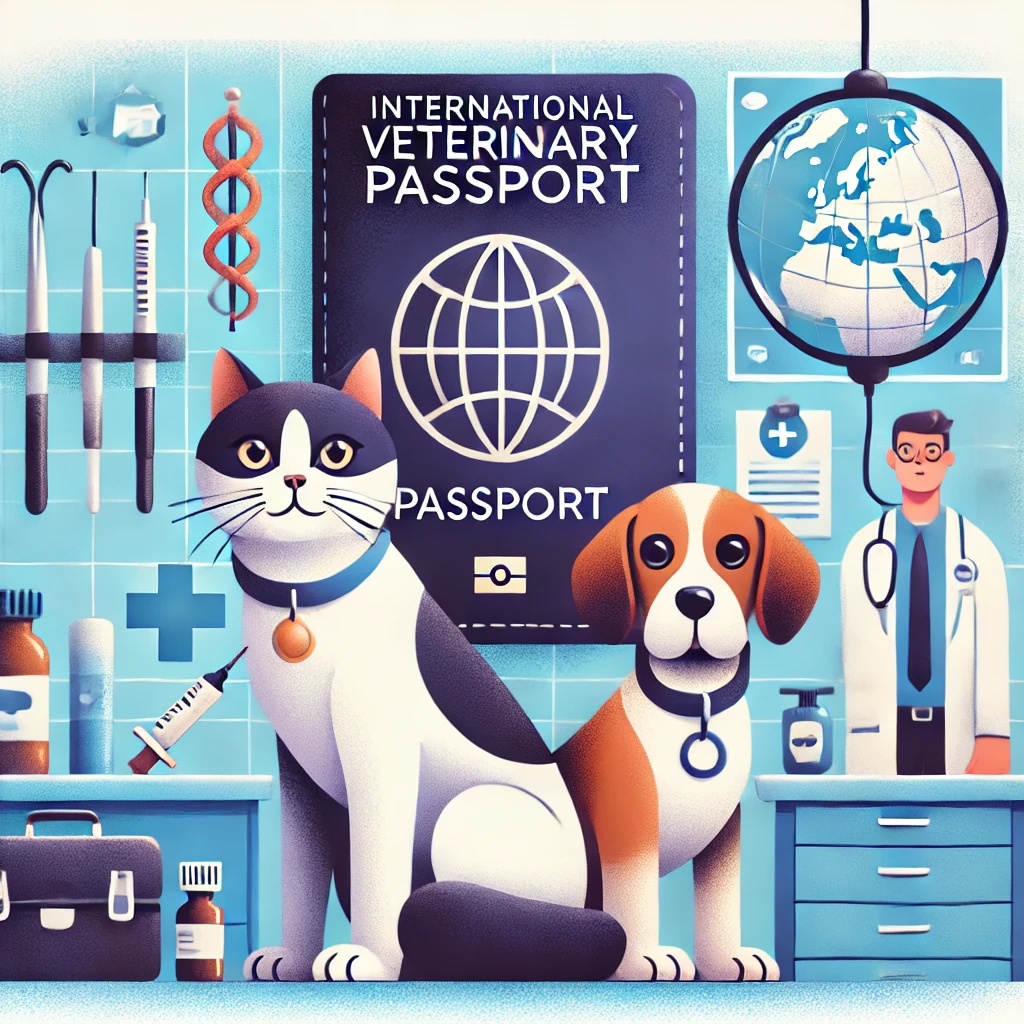If you want to travel to another country or comfortably travel within your homeland with your pet, you will need an international veterinary passport. This is not just a document for crossing borders but also proof that your pet is healthy. Let's understand why this passport is necessary and how to get it.
What is an International Veterinary Passport?
An international veterinary passport is an official document with basic information about your pet: its name, health status, and vaccinations. It is needed not only for safe travel with your pet between countries but also for visiting veterinary clinics, pet hotels, and participating in exhibitions. The passport also includes information on deworming treatments and parasite protection, which is essential for your pet's safety and compliance with other countries' regulations.
Why is an International Veterinary Passport Necessary?
The main reason for needing an international veterinary passport is to be able to travel with your pet without any issues. Most countries require this document for your pet to cross the border. For example, for trips to EU countries such as France or Germany, having a passport is mandatory. Without it, you may be denied entry or even have your pet placed in quarantine.
In addition, the passport is also needed in everyday life. For example, when visiting pet hotels, veterinary clinics, or participating in exhibitions, this document greatly simplifies registration and proving your pet's health.
In addition, the passport is also needed in everyday life. For example, when visiting pet hotels, veterinary clinics, or participating in exhibitions, this document greatly simplifies registration and proving your pet's health.
How to Get an International Veterinary Passport
- Choose a Veterinary Clinic. To get an international passport, you need to visit a certified veterinary clinic. Make sure the clinic has a license and experience in processing international passports for pets.
- Vaccinations and Treatments. Before getting the passport, your pet must receive all necessary vaccinations according to international standards. The most important one is the rabies vaccination. You should also conduct deworming and external parasite treatments. All these procedures must be recorded in the document.
- Microchipping. In most countries, pets are required to have a microchip containing information about the owner and the pet. Microchipping is mandatory for obtaining the passport, as it is important for identifying the pet, especially if it is lost or travels to another country.
- Filling Out the Passport. After all necessary procedures, the veterinarian fills out the passport with information about the pet, owner, vaccinations, treatments, and microchipping. It is important that all entries are made in English or in a language understandable in the destination country.
When to Start the Process
It is best to start the process of obtaining an international veterinary passport in advance, at least a month before the planned trip. This will help avoid delays and ensure that all necessary procedures are completed on time. Remember that some vaccinations must be done 21-30 days before crossing the border to be valid.
Why Choose Shunn u Katun?
At our veterinary clinic, you can get all the necessary documents for your pet's international passport in one place. We provide vaccinations, microchipping, and consultations on different countries' regulations to make preparing for your trip as convenient as possible for you.
Don't delay getting your pet's international veterinary passport—learn more about how we can help you prepare for your journey!
Don't delay getting your pet's international veterinary passport—learn more about how we can help you prepare for your journey!
